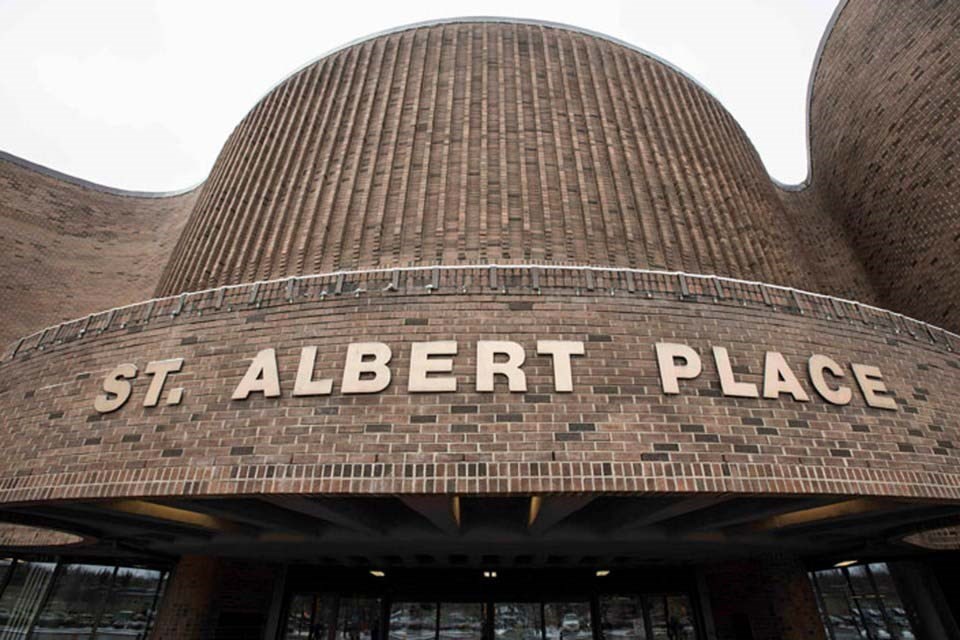The City of St. Albert had more than a $2 million operating surplus this past year due to anticipated earnings from electric franchise fees, investment income, ambulance billing, and an increase in transit ridership.
On Tuesday, St. Albert city council voted to split the estimated 2022 operating surplus of $2.3 million evenly between two city reserves.
The 2022 surplus, according to the city's fourth quarter financial report released last week, stems from the city coming in $7.5 million below their yearly operating budget of nearly $188-million, while overall operating revenue was about $5.2 million less than forecasted.
Last year the city reported a surplus of $3.9 million for 2021, due mainly to facility closures and staff vacancies related to the COVID-19 pandemic. All of the $3.9 million surplus for 2021 was transferred to the city's stabilization reserve, which is the policy-recommended reserve for annual surpluses.
Although the final 2022 surplus total won't be finalized until April after the annual audit of the city's finances is completed, the fourth quarter financial report explains that, on the revenue side, the city generated higher than anticipated earnings from electric franchise fees, investment income, ambulance billing, and transit ridership.
The report states that the city collected $471,000 more in revenue than expected through transit "due to ridership levels growing at a higher pace than anticipated during pandemic uncertainty." Whether or not transit ridership levels have returned to pre-pandemic levels is not specified in the report, however the City of Edmonton announced on Feb. 10 that transit ridership levels last month were identical to 2019 numbers.
Other notable revenue-related line items highlighted in the financial report include the city earning $282,000 more than budgeted from tax penalties and web certificates, $348,000 more than expected in permit and development revenue, and $35,000 more than expected from cemetery fees.
While the report states the city managed to find significant operating savings, such as $1.16 million from staff vacancies and reallocation, factors such as high fuel costs, increased ice and snow maintenance spending, and the recently ratified national collective agreement for Royal Canadian Mounted Police (RCMP) kept the surplus from being larger.
According to the report, fuel costs required $524,000 more than budgeted, snow and ice maintenance required $871,000 more than budgeted, and the RCMP collective agreement signed in August, which ensured members receive a 23.78 per cent pay raise as well as back-pay for 2017-2021, required $470,000 more than budgeted.
The Gazette reported in December that, at the time, the city was estimating the 2022 surplus to be about $300,000, but city spokesperson Danelle Boivin says the $2 million increase was due in large part to the unexpected revenue levels from transit, franchise fees and permit fees.
"In addition, some costs were not as high as initially anticipated [in December]," Boivin said.
"The combination of additional revenue and lower expenses resulted in a year end surplus of $2.3 million, which equates to 1.2 per cent of the 2022 budget."
In an interview, Mayor Cathy Heron told The Gazette that she thinks some will see the surplus as being an indicator that residents were overtaxed, but the percentage the surplus represents out of the budget as a whole says otherwise.
"We're (1.2 per cent) off budget, and in the long run that's actually really tight and really good budgeting," Heron said. "Our staff does a really good job of predicting revenue and expenses and generally come in pretty close to budget."
Money to reserves
A council backgrounder prepared by the city's manager of financial operations, Brenda Barclay, states that one of administration's recommendations for council this year was to split the surplus evenly between the municipal lands and facilities reserve and the capital reserve, rather than transfer the full amount to the stabilization reserve, which currently has a balance of $9.7 million.
Administration's first recommendation was for council to transfer the 2022 surplus to the municipal lands and facilities reserve only, but council unanimously passed the motion put forward by Coun. Sheena Hughes to split the surplus between the two reserves.
Council heard that, prior to the surplus transfer, the municipal lands and facilities reserve's balance stood at $1.9 million, while the capital reserve's available balance had stood at $1.4 million.
Heron also said that although the 2022 surplus was split between the municipal lands and facilities reserve, which is used largely to aid the purchase and development of city-owned land, and the capital reserve, which is used to partially fund capital projects when needed, reserve funds can always be used for other purposes as council sees fit.
During the special city council meeting held on Feb. 14 regarding the surplus, Coun. Ken MacKay asked administration how the stabilization reserve's balance had reached $9.7 million, as just over a year ago council had heard concerns about the balance being considerably low.
Barclay, in response to MacKay's question, told council that the city had previously committed about $5.1 million in "COVID-19 relief funding," that was held in the stabilization reserve, but the city had since uncommitted the funding. Barclay did not explain what the COVID-19 funding was previously committed too, and why the spending was not followed through on.
While the 2022 surplus is less than the previous year's, Hughes said in an interview that it's still a "substantial" amount that gives the city an opportunity to budget more precisely in 2023.
"I do think that this gives us an opportunity to go back and look at any of the assumptions we've made in this budget, and reevaluate, to make sure that [the 2023 tax rate] coming forward for our residents and businesses this year is as low as possible," Hughes said.
"I think that we should see if there's anything, in the light of day now that the year has come to a close, will give us new opportunities and new discussion points to reduce that."




